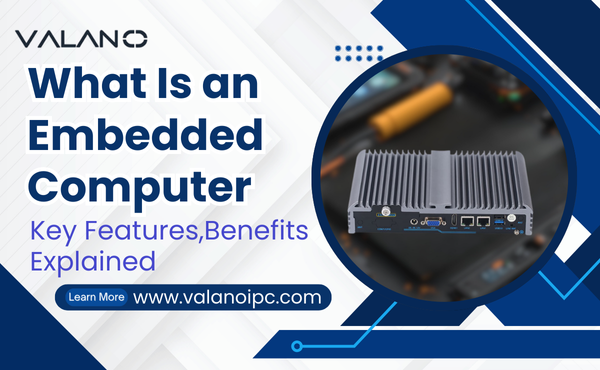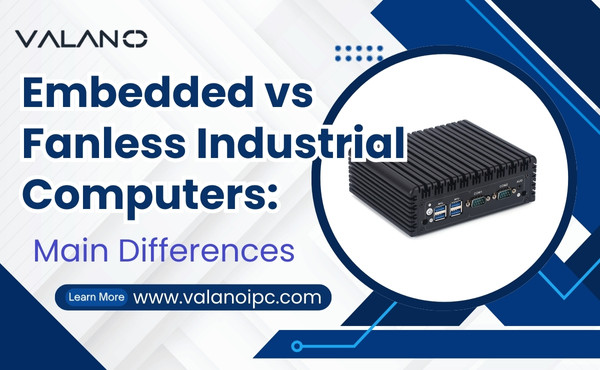
When comparing Intel Celeron vs Core i3, the differences are clear in performance, efficiency, and ideal usage. Whether you’re choosing a processor for simple web browsing or light industrial software, knowing how these two options stack up helps ensure you get the best value for your budget.
Key Takeaways
-
Intel Celeron is affordable and efficient for basic tasks like document editing and web browsing.
-
Intel Core i3 is more powerful, making it suitable for multitasking, light gaming, and media streaming.
-
Celeron consumes less power and generates less heat, while Core i3 offers higher speeds and more capabilities.
-
Choose Celeron for entry-level use; opt for Core i3 if you need more performance and longevity.
Performance Comparison: Intel Celeron vs Core i3
Core Count, Threads, and Clock Speed
Intel Celeron and Core i3 processors are quite different. Celeron usually has 2 cores and 2 threads. This makes it good for simple tasks like browsing or typing. For example, the Celeron N4020 runs at 1.1 GHz, while the G5920 can go up to 3.5 GHz. But these processors are not strong enough for heavy tasks.
Core i3 processors are much stronger. They often have 4 cores and 8 threads. This helps them handle more tasks at once and work faster. For instance, the Core i3 10100 runs between 3.6 GHz and 4.3 GHz. The i3 12100 works at speeds from 3.3 GHz to 4.3 GHz. These features make Core i3 better for harder jobs.
Here’s a simple comparison:
| CPU | Clock Speed | Core Count | Thread Count |
|---|---|---|---|
| Intel Celeron N4020 | 1.1 GHz | 2 | 2 |
| Intel Core i3 10100 | 3.6 GHz – 4.3 GHz | 4 | 8 |
| Intel Core i3 12100 | 3.3 GHz – 4.3 GHz | 4 | 8 |
Core i3 processors are faster and better for multitasking.
Real-World Benchmark Scores
Tests show big performance gaps between Celeron and Core i3. PassMark scores give Celeron an average of 1551. Core i3 scores much higher at 4913. In single-thread tests, Celeron gets 1148, while Core i3 scores 2187.
Geekbench 6 also shows this difference. Celeron gets 547 for multi-core and 343 for single-core. Core i3 scores 2381 (multi-core) and 1286 (single-core). These numbers prove Core i3 is faster for both simple and complex tasks.
Multitasking and System Responsiveness
Core i3 is great for multitasking. Its 4 cores and 8 threads let you run many apps at once. You can stream videos, edit files, or use light tools without lag.
Celeron is not as good at multitasking. It has fewer cores and threads, so it slows down with many apps open. It works best for one task at a time, like browsing or emailing.
Core i3’s design makes it better for multitasking. Its faster speeds and extra threads handle tough jobs easily. If you need a processor for multitasking, Core i3 is the smarter pick.
Efficiency Analysis: Intel Celeron vs Core i3
TDP and Thermal Output
TDP shows how much heat a processor makes when working hard. Celeron processors use less power, with TDP between 15W and 25W. This makes them good for cheap devices that save energy and stay cool. Core i3 processors have higher TDP, usually from 35W to 65W. They perform better but create more heat.
Core i3 processors need better cooling because of their higher TDP.
Energy Use in Daily Tasks
Celeron processors are great for saving power during simple tasks. Their low TDP means they use less energy, making them ideal for light work like browsing or typing. For example:
-
Laptops with Celeron last longer on battery due to low power use.
-
Desktops with Celeron save electricity, lowering costs.
Core i3 processors use more energy but work faster. They are better for multitasking, editing, and gaming. However, they use more electricity and make more heat.
Fan Noise and Heat (Optional)
Celeron processors stay cooler, so their fans are quieter. This makes them good for places where noise matters. Core i3 processors make more heat because of higher TDP. Their fans can be louder, especially in small systems with less airflow.
Choose Celeron for quiet systems. Pick Core i3 for better performance, even with more noise and heat.
Application Suitability: Intel Celeron vs Core i3

Basic Office and Web Tasks
For simple tasks like typing or browsing, both processors work. But their performance is different. Celeron is made for basic computers. It’s great for using Word or surfing online. It uses less power and costs less, making it good for saving money.
Core i3 is better for harder tasks. It can handle multitasking, like editing files, checking emails, and researching online. You won’t notice slowdowns when switching between tasks. If you need a faster computer for office work or smoother web use, Core i3 is the better pick.
Here’s a quick comparison:
| Processor Type | Performance in Basic Tasks | Suitable Applications |
|---|---|---|
| Intel Celeron | Good for Word and web surfing | Basic apps, budget computers |
| Intel Core i3 | Faster, handles harder tasks | Better for multitasking, more demanding apps |
If you only need basic functions and want to save money, choose Celeron. For better speed and productivity, go with Core i3.
Industrial Software, Virtualization, and Development
For heavy tasks like coding or running virtual machines, the choice is clear. Celeron is not made for these jobs. It has fewer cores and slower speeds, so it can’t handle big tasks like CAD software or compiling code.
Core i3 is a good option for small projects or learning. It can run one virtual machine and supports tools like Visual Studio. While it’s not as strong as higher-end processors, it’s affordable and works for light industrial tasks.
If you need a processor for heavy work, Core i3 is the minimum choice. It has enough power to handle these tasks without costing too much.
Cost and Value Analysis
Market Price Trends and Availability
Intel Celeron and Core i3 processors have big price differences. Celeron processors are cheaper and made for people on a budget. They are easy to find in basic laptops and desktops, often costing less than $100. This makes them a good choice for simple computing tasks.
Core i3 processors cost more because they are faster and have better features. Their prices usually range from $120 to $200, depending on the model and generation. These processors are found in mid-range computers, offering a mix of good performance and reasonable cost.
Both processors are available in stores, but Core i3 models might be harder to find during busy shopping times. If you need a low-cost option, Celeron is easier to buy.
Features at Each Budget Tier
Intel Celeron and Core i3 processors have different features based on their prices.
| Feature | Intel Celeron | Intel Core i3 |
|---|---|---|
| Performance | Good for simple tasks | Handles harder tasks |
| Price | Lower cost | Higher due to better features |
| Power Efficiency | Saves energy for basic use | Efficient for multitasking |
| Suitability | Browsing, typing documents | Editing photos, multitasking |
| Gaming | Limited abilities | Better for casual gaming |
Celeron processors work well for basic tasks like browsing and typing. They are a smart choice for people who want to save money. Core i3 processors are better for users who need faster speeds for multitasking, editing, or light gaming.
Best Choice Based on Usage and ROI
Choosing between Celeron and Core i3 depends on your needs and budget. If you only need a processor for simple tasks, Celeron is a great value. It’s affordable and avoids spending extra on features you won’t use.
If you need better speed for multitasking or gaming, Core i3 is worth the extra money. It costs more but gives better performance, making it a good choice for demanding tasks.
When looking at Intel Celeron and Core i3, the differences are clear. Celeron processors are cheaper and save more energy. They work well for simple tasks like browsing or typing. Core i3 processors are faster and handle harder jobs. They are great for gaming or editing videos.
Here’s a simple summary:
| Feature | Intel Celeron | Intel Core i3 |
|---|---|---|
| Performance | Slower, good for easy tasks | Faster, handles harder tasks |
| Efficiency | Uses less power, stays cooler | Uses more power, gets hotter |
| Price | Cheaper for basic use | Costs more for better features |
| Ideal Use | Browsing, typing documents | Gaming, editing, multitasking |
| Compatibility | Works with most motherboards | May need specific motherboards |
If you want a low-cost processor for simple tasks, pick Celeron. But if you need speed and multitasking, Core i3 is worth the extra cost. Choose based on what you need your computer to do.







